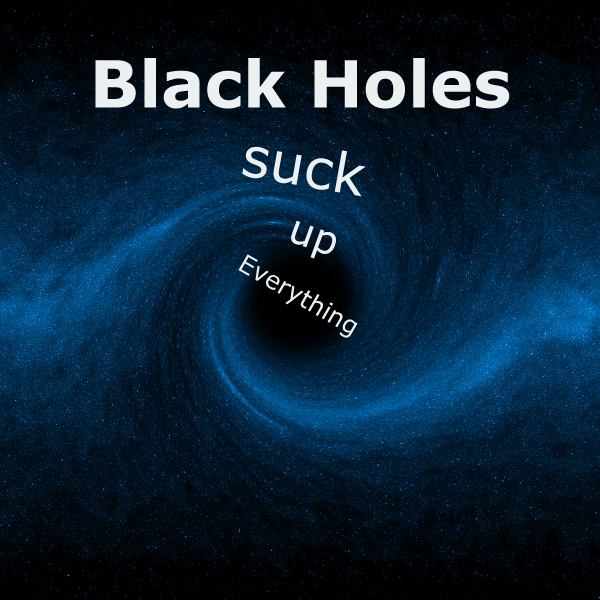Do black holes suck up everything?
A stellar “black hole” is created when a massive star collapse in on itself at the end of its life cycle. Movies, TV shows and even video games tell us that black holes are like cosmic vacuum cleaners, sucking up everything in their vicinity with their powerful gravity. If our hero’s spaceship ventures too close, he will be pulled to certain death with no possibility of escape.
The gravitational force exerted by any object in the universe is directly proportional to its mass. A black hole cannot (initially) contain more mass than the star that collapsed to form it. Therefore, although its mass has been compacted into an unimaginably small size, the gravitational pull that the black hole can exert is no greater than that of the original star.
If the sun, for example, turned into a black hole tomorrow (actually not possible, since the sun is much too small – it is believed that about 3.2 solar masses is the minimum requirement), life would eventually die out due to the lack of sunlight, but Earth would continue to orbit the black hole as before… it would not be dragged into oblivion.
Bonus Fact: After forming, black holes can gradually accumulate material and grow to enormous size. The mass of such “super-massive” black holes can be millions of times that of the sun. Scientists believe that all galaxies, including our own Milky Way, have a super-massive black hole at their center.





The technical name for this is a “singularity” the famous black hole. This point is hidden inside the so-called “event horizon”.